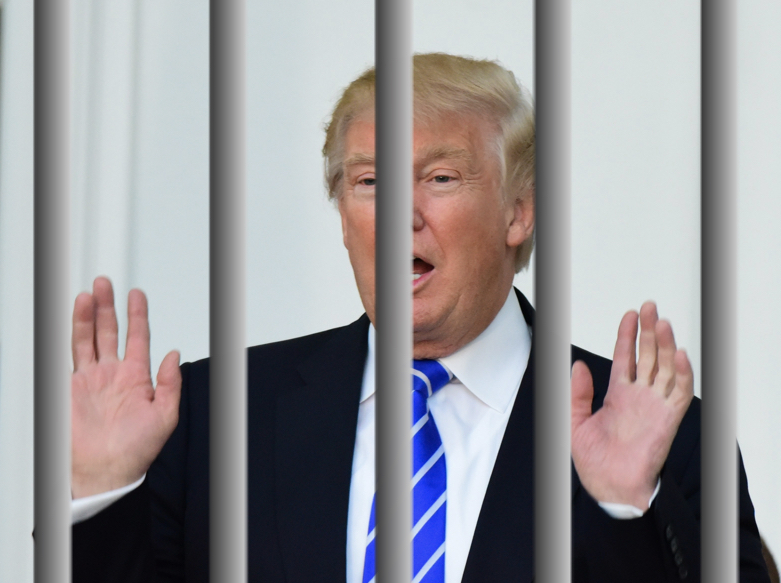Welcome to Donald Trump’s treason season

Earlier today, Palmer Report wrote that it’s time for everyone involved to start referring to Donald Trump’s election conspiracy with the Russians as “treason.” In a coincidental but telling development, right around that same time today, Democratic Senator Jeff Merkley tweeted that “if you worked with a hostile foreign power during your election, it’s called TREASON.” There’s a reason we’ve arrived at this point at this particular time.
This morning Donald Trump finally rolled out the last ditch defense that we all knew he’d eventually fall back on, when he tweeted that “collusion is not a crime.” Technically, he’s correct. “Collusion” isn’t even a proper legal term. “Conspiracy” is, but conspiring or colluding is only a crime if the things you’re conspiring or colluding about are crimes. It’s why the charge is always “conspiracy to commit” something. Now that Trump is playing semantics with the meaning of words like collusion, we have to stop using such words altogether, and start referring to the crimes that Trump was conspiring to commit.
When Trump attempted to get dirt on Hillary Clinton from representatives of the Russian government, he committed multiple cut-and-dry felonies. He tried to illegally receive stolen goods, as he believed he would be receiving Democratic Party emails that had been stolen by Russian hackers. He also tried to accept a foreign gift of value, which is illegal for a candidate or campaign to do. But of course there’s more to it. He was committing these felonies in the name of plotting with a foreign enemy to alter the outcome of a U.S. election in his favor. And there’s only one proper legal term to describe that: treason.
There are reasons why people have been hesitant to use that term. Treason is a qualitative or “big picture” crime, where things like intent and context are paramount. It’s much easier to argue that Trump committed the specific felonies involved in seeking stolen emails from the Russians, than it is to argue that those felonies constitute treason. Then there are the people in the peanut gallery who incorrectly yell “It’s not treason unless there’s a declaration of war” whenever they hear the word used. American history clearly demonstrates that only an act of war is required, and it’s easy enough to frame Russia’s election hacking as an act of cyber war.
The media has largely been afraid to use the term “treason” for the same reason the media always plays it safe: it’s afraid of being browbeaten by the angry yellers out there, on both sides, who spend all day on social media looking for reasons to attack news outlets over their “credibility.” The media doesn’t want to be accused of misusing the word by the angry yellers who don’t know what the word means. So instead the media frames this as “collusion vs no collusion” – even though that’s not even a legal term – because it’s safer. But that’s all about to change.
The Democrats in Congress, particularly those closer to the party leadership, have had to be careful about using the word “treason” for a different reason. If they’d said that word too loudly before now, the media would have seized the opportunity to accuse them of partisan overreach because there was no absolute proof that Trump was working with the Russians, and the public would have gone along with it. But things are different now. We all saw Trump stand next to Putin and side with Russia over the United States government. We all now see Trump’s own former top people lining up to testify that he did in fact conspire with the Russians.
So while the media should have had the courage to call this “treason” a long time ago, today is the right time for the Democrats in Congress to begin using that word. Under the current circumstances, it’ll force the media to begin at least asking the question of whether this was treason. That’ll move the discussion to the point that the American public will begin actively debating whether Trump committed treason. Once that word comes to the forefront, Trump won’t be able to simply claim that “treason is not a crime.” At that point he’ll be officially out of defenses, out the door, and awaiting trial.
